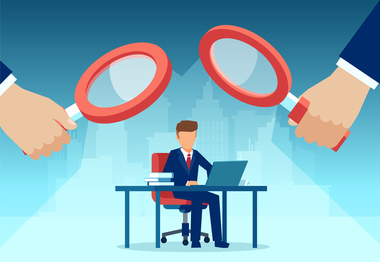When Supreme Court Justice Louis Brandeis noted that Americans cherish the right "to be alone," he was referring to what is known as a constitutional right to privacy. Little could Brandeis have
realized, back in 1928, how extensive the communications of the modern workplace would become.
A hundred years on, most employees would begrudgingly accept that they may sacrifice that precious privacy in exchange for a job with a salary and benefits. As technology expands into every corner, the distinction between business and personal is becoming increasingly cloudy. Many workers and their supervisors are not sure how much surveillance is permissible.
The basis for bossware
Employers must balance workers' reasonable expectations of privacy against legitimate business interests. Ostensibly, business justifications may involve:
- Liability.
- Productivity.
- Confidentiality.
- Proprietary information.
- Business reputation.
- Security.
These rationales appear reasonable; often, in fact, the underlying driver is to ensure employees are not goofing off. A flexible work-life balance has its quid pro quo, exposing workers to scrutiny on their remote devices.
Since the pandemic, the demand for monitory software, aka bossware or tattleware, has shot up. According to ExpressVPN, 80% of companies use software to track online activity and performance, and 73% store recordings of calls, emails and messages to evaluate performance.
Open season
Gentlepeople do not read each other's mail, so they say. This sounds old-fashioned, but management today has few qualms about intercepting many communications transmitted by staff in work-related matters.
As an employer, you are entitled to search someone's workspace, including their desk, individual office or locker. How about their briefcase or backpack, propped next to the workstation? Yes, you can rifle through those personal belongings, too, if you have preserved that right in a signed policy. A company computer, naturally, including any saved files, is fair game, and it is acceptable to trace its digital footprint. Likewise, you may watch your team's screens in real time or peek inside their hard drives, even noting their number of keystrokes per hour (which may indicate their productivity). The same principles apply if they also use a business computer or phone outside work. You can search a car provided by the firm, and its GPS, but absolutely never an employee's private car.
Eavesdropping is sometimes sanctioned, within bounds. You are allowed to listen in to phone calls if, and only if, you are observing them for quality. But the moment it becomes clear that a conversation is personal in nature, you must disconnect, even if the call is being conducted from the office. You can also search text messages for business issues on company-provided phones.
In a world of ubiquitous video cameras, you can install yours in your offices and parking lots. You can film your premises in most places — but do avoid bathrooms, dressing areas, break rooms and locker rooms where workers can expect privacy. Note that you cannot turn the product into a movie, however engaging! Federal wiretap law prohibits you from recording accompanying audio.
Lastly, you can open mail addressed to employees and delivered to the office. Gentlepeople perhaps do read each other's correspondence after all.
Get the John Hancock
The cardinal rule is to document company monitoring policies in an employee handbook and insist employees acknowledge and sign them. As a condition of employment, you can require they agree and adhere to the handbook, as stipulated in the Electronics Communications Privacy Act of 1986. Your handbook should address rules governing email, telephone, voicemail, internet use and, importantly, social media.
Employees may be oblivious to consenting to surveillance, which might be buried deep in an employment contract. It can be tempting to race through a boilerplate when someone is more focused on salary and benefits.
To be safe, treat all personal data about employees and their families as private. Protect confidential information, such as medical records and Social Security numbers. Try to limit electronic surveillance to regular work hours and, if feasible, monitor internal network traffic rather than devices directly.
Your attorney can help you comply with your state's specific laws.
Copyright 2024
